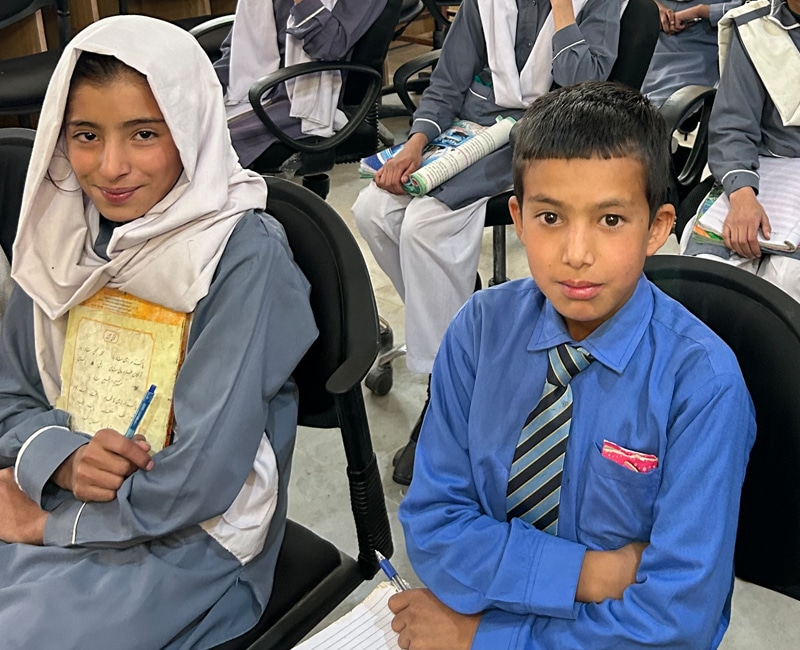
Central Asia Institute has supported education at the intersection of the Hindu Kush and Karakoram mountain ranges of northern Pakistan since 1996. Across the remote valleys of Gilgit-Baltistan, we partner with local communities to ensure every child can learn. We work in areas where education for girls has long been limited by geography, poverty, and tradition. Now, more families are choosing to send their daughters to school and keep them there.
Still, challenges remain. Nationwide, an estimated 77% of children cannot read or comprehend a simple written text by age 10.5 Nearly 32.5 million children are out of school, and the majority are girls.6 In rural areas, girls are twice as likely as boys to be excluded from education.7 Women’s access to paid work also remains low, with only 25% of women participating in the workforce, compared with 84% of men.8 Pakistan ranks 145 out of 146 countries in gender parity worldwide.9
To address these challenges, CAI currently supports 44 schools across six districts in Gilgit-Baltistan. In 2025, these schools served approximately 6,850 students, of whom more than 60% are girls. The schools employed 100+ women teachers, among roughly 270 total CAI-supported educators. We also operate 26 preschools presently serving 640 children and staffed by nearly 60 specially trained teachers. CAI has also established mothers’ forums at 30+ schools to encourage women to actively participate in their children’s education.
Our women’s entrepreneurship program in Pakistan trains women in fruit processing and small business management. In 2025, we trained 60 women who raised their income by an average of 180%.

5 World Bank. (2024, June). Five major challenges to girls’ education in Pakistan. World Bank. https://datatopics.worldbank.org/dataviz/girls-education-pakistan/#reference_1
6 UNICEF. Education. UNICEF Pakistan. https://www.unicef.org/pakistan/education
7 Brookings Institution. (2023, February). Pakistan 2022: Final web. Brookings Institution. https://www.brookings.edu/wp-content/uploads/2023/02/Brookings2022-Pakistan_FinalWEB.pdf
8 World Bank & International Labour Organization. (2024). Women’s economic empowerment in Pakistan: An evidence-guided toolkit for more inclusive policies. https://thedocs.worldbank.org/en/doc/e02bd4872b983fc0b4a1809489231e35-0310012024/original/Womens-Economic-Empowerment-in-Pakistan.pdf
9 World Economic Forum. (2024, June 11). Global Gender Gap Report 2024 – Digest. World Economic Forum. https://www.weforum.org/publications/global-gender-gap-report-2024/digest/